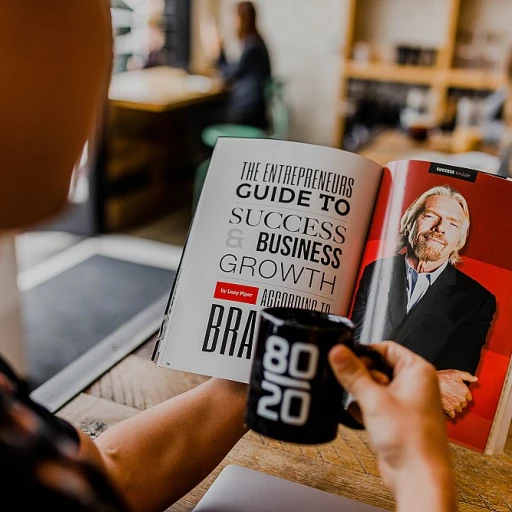
Understanding Candidate Experience
Exploring Key Elements of the Candidate Experience
The candidate experience has become a pivotal part of the hiring process, emphasizing the holistic view that candidates have of your company, from the initial interaction to the final decision. Understanding this can not only enhance your hiring efficiency but also boost your brand reputation. With the rise of online interviews, scheduling plays a crucial role in shaping this experience. In today's competitive job market, recruiters and hiring managers aim to streamline the interview process without compromising the candidate's experience. Interviews are the candidate's window into how a company operates and treats its employees. Missteps in this area can lead to lost talent and a tarnished image. The process involves scheduling interviews, which should be done with foresight and precision. Coordinating different time zones and aligning the hiring team can be challenging, yet it is crucial to ensure a seamless journey. Furthermore, back-to-back interviews, while efficient, might prove to be taxing both for the interviewer and the candidate, ultimately affecting the candidate’s perception. Investing in appropriate scheduling software and tools can significantly aid in managing an interview schedule that respects the availability and preferences of both candidates and interviewers. The key is balancing practicality and empathy, ensuring that the interview process is optimized for real-time efficiency and a positive candidate perspective. For actionable insights into crafting an exceptional interview journey for candidates, you can refer to this guide that delves deeper into maintaining a balance between scheduling efficiency and candidate satisfaction. By prioritizing a well-rounded candidate experience, organizations can reinforce their commitment to equitable and considerate hiring practices.The Pros of Back-to-Back Interviews
Enhancing the Recruitment Process with Back-to-Back Interviews
Conducting back-to-back interviews has its advantages, especially in optimizing the recruitment process. Implementing such a schedule can be a powerful tool for hiring teams and companies aiming to streamline their process and make efficient use of their resources. First and foremost, this method significantly reduces the overall hiring time. By scheduling interviews consecutively, recruiters can evaluate multiple candidates in a short span, ensuring that the best candidate is selected swiftly. Given the fast-paced hiring environment, this approach enables hiring managers to move quickly when a potential candidate is identified, reducing the risk of losing top talent to competitors. From a logistical standpoint, back-to-back interviews allow for better coordination within the hiring team. Aligning all necessary interviewers' calendars for a day or series of consecutive days minimizes delays caused by mismatched schedules. Furthermore, it simplifies the scheduling process, as the interviewers can remain focused and in the "interview mindset," without being distracted by other tasks. Involving various interviewers during consecutive slots offers diverse perspectives on the candidate in real time, enhancing the depth and quality of the interview process. This concentrated focus on the interview schedule fosters clear and collective decision-making, ensuring that the best fit for the job is hired. Moreover, a tightly managed interview schedule communicates to the candidates that the company values efficiency and respects their time. For companies looking to balance systematic recruiting and maintaining a positive candidate experience, back-to-back interviews can serve as a strategic approach. Potential employees perceive well-organized interview schedules as indicative of a company's professionalism and commitment to the hiring process. While the efficiency of conducting back-to-back interviews is evident, it's essential to weigh their effectiveness against potential drawbacks. To ensure a seamless experience for both candidates and recruiters, companies might consider utilizing scheduling software. These tools help in managing time zones and interview schedules, reducing the complexity involved in arranging interviews with candidates across different regions. Maximizing the efficiency and effectiveness of interviews may lead to a positive candidate experience. This, in turn, contributes to a company's reputation in the job market, fostering trust and appeal among prospective candidates. While it's crucial to prioritize efficiency, the main focus should always remain on creating a welcoming and respectful interview environment.The Cons of Back-to-Back Interviews
The Drawbacks of Consecutive Interviews
While scheduling back-to-back interviews can offer certain efficiencies, it is essential to weigh the potential negative impacts on the candidate experience and the interview process as a whole. Despite the apparent advantages, some aspects could hinder both candidates and the hiring team.
Firstly, fatigue can be a significant concern for both candidates and interviewers. A continuous string of interviews can lead to mental exhaustion, making it challenging for candidates to put their best foot forward and for interviewers to maintain a high level of engagement and attentiveness throughout the schedule. This fatigue can impact the quality of the interaction and lead to less effective decision-making.
Secondly, the risks of miscommunication and oversight increase when interviews are not spaced out adequately. Limited time between interviews may result in rushed transitions, where the interviewer or candidate does not have enough time to reflect on previous interactions, adjust their approach, or evaluate learnings before proceeding to the next candidate. Improving the scheduling process is critical to ensuring that critical feedback isn't lost in the shuffle of a tight interview schedule.
Additionally, consecutive interviews may lead to inadvertent biases. Characters and impressions might begin to blur as the company's hiring managers conduct multiple interviews without significant breaks. The lack of time to properly contextualize each candidate's responses in real time may skew perceptions and affect fairness during the evaluation.
Lastly, not allowing enough time between interviews can affect the perception of the company's attention to detail and regard for each candidate's individuality. Candidates might feel like they're part of a fast-paced hiring machine rather than being evaluated based on their unique talents and experiences. Adopting a mindful approach, perhaps by using effective scheduling software, could enhance the sense of personalized experience each candidate receives.
Overall, while there may be times when consecutive interviews are necessary, careful consideration should be given to avoid potential pitfalls and create a balanced and comprehensive hiring process. Engaging candidates effectively and ensuring they feel valued starts with thoughtful interview scheduling, acknowledging both time constraints and human factors in the scheduling process. For those navigating complex assessments, examining our post on mastering executive assessments can provide valuable insights.
Balancing Efficiency and Experience
Finding the Right Equilibrium
In the quest for a smooth interview process, it becomes crucial to balance efficiency and candidate experience. While arranging interviews might appear straightforward on paper, the reality is often more complex. The intersection of time management, candidate satisfaction, and team coordination is where recruiting meets its trickiest challenges.
Back-to-back interviews might streamline the hiring process, but it's vital to weigh the benefits against potential drawbacks. A hurried schedule can hinder the candidate's ability to showcase their skills and the hiring team's ability to assess them thoroughly. Here, a thoughtful approach to the interview schedule becomes essential.
First, determining the right number of interviews in a day is key. Beyond this, it’s about ensuring that each interviewer is refreshed and ready to engage with candidates. Avoiding interviewer fatigue is crucial as it can affect the quality of interview questions and overall interaction with the candidate, negatively impacting the candidate’s experience.
Utilizing scheduling software can aid this balance by accommodating time zones and varying schedules efficiently, thus alleviating the undue pressures of scheduling interviews. Moreover, integrating a buffer period between interviews gives candidates time to compose themselves and gather any final thoughts, smoothing out any potential hitches seen in a consequent back-to-back arrangement.
In crafting the best interview journey for each candidate, it's essential to remember that you're not just hiring for skill but welcoming an individual into their potential new professional environment. The balance is delicate but achievable with thoughtful planning, keeping both logistical efficiency and candidate experience in mind.
Alternatives to Back-to-Back Interviews
Exploring Alternatives to Back-to-Back Interviews
While back-to-back interviews can streamline the hiring process, they may not always be the best fit for every company or candidate. Here are some alternatives that can enhance the candidate experience while maintaining efficiency:
- Staggered Interview Schedule: Instead of scheduling interviews consecutively, consider spreading them out over a few days. This allows candidates to have time to reflect on each interview and prepare for the next set of interview questions.
- Virtual Interviews: Utilizing scheduling software for virtual interviews can help accommodate different time zones and provide flexibility for both the hiring team and candidates. This approach can also reduce the stress of travel and logistics.
- Panel Interviews: Conducting a single interview with multiple interviewers can be an efficient way to gather diverse perspectives without overwhelming the candidate with multiple sessions.
- Pre-Interview Assessments: Implementing assessments before the interview process can help narrow down candidates, ensuring that only the most suitable individuals proceed to the interview stage. This can save time for both the hiring managers and candidates.
- Flexible Scheduling: Allow candidates to choose from a range of available interview slots. This flexibility can improve the candidate experience by accommodating their existing commitments and reducing stress.
By considering these alternatives, companies can create a more balanced approach to interview scheduling that respects the needs of both the hiring team and the candidates, ultimately leading to a more positive candidate experience.
Best Practices for Interview Scheduling
Ensuring Effective Interview Scheduling
In the hiring process, interviews play a pivotal role in determining a candidate's fit for a job position. However, how you manage the interview schedule can significantly impact the candidate experience. Here are some best practices to guarantee a smooth and effective interview scheduling process:- Utilize scheduling software: Leveraging technology can help streamline the scheduling process. Interview scheduling software can coordinate time zones, reduce back-and-forth communication, and allow candidates to select from available slots that fit their schedule.
- Consider time zones: If your candidates are located in different regions, be mindful of their local time. Scheduling interviews at convenient times for all parties involved will demonstrate your company's respect and flexibility.
- Provide sufficient buffer time: Avoid back-to-back interviews without breaks. Ensure there’s enough buffer time for both the interviewer and candidate to refresh and reorganize their thoughts.
- Communicate openly: Keep candidates informed about the interview process, including the expected duration of each interview and the format. Clear communication helps candidates prepare adequately.
- Coordinate with the hiring team: Ensure all hiring managers and team members involved in the interview process are on the same page. A cohesive team approach presents a unified company image to the candidates.
- Prepare relevant interview questions: Craft meaningful and relevant questions that address the specific role and candidate's experience, enhancing the interview depth. Candidate Experience Institute: crafting effective interview questions for candidates
- Respect privacy policy: Handle candidate data with integrity, ensuring all personal information is managed per your company's privacy policy.













